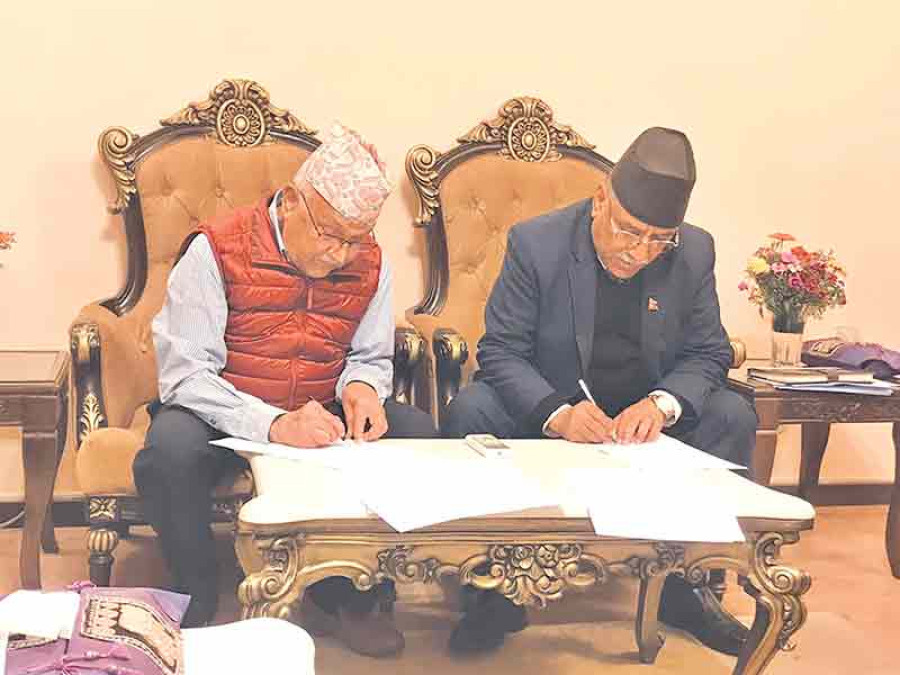Valley
UML, Maoist Centre agree to form CPN
More than two months after the federal and provincial polls gave them a sweeping majority, two communist allies CPN-UML and CPN (Maoist Centre) agreed to the bases for merger on Monday night.
Tika R Pradhan
More than two months after the federal and provincial polls gave them a sweeping majority, two communist allies CPN-UML and CPN (Maoist Centre) agreed to the bases for merger on Monday night.
A meeting of the Party Unification Coordination Committee (PUCC) held in Baluwatar spelt out seven points of agreement to further the unification process.The unified party will be named the Communist Party of Nepal. It will fall short of 10 seats for a two-thirds majority in the 275-strong Lower House. The UML has won 121 seats and the Maoist Centre 53 in the House of Representatives.
The merger will ensure political stability at least for the next five years in the country where governments change almost every year.As per the agreement, two top leaders KP Sharma Oli and Pushpa Kamal Dahal will share the party chair in equal capacity. The duo would also share the five-year term of prime minister. Marxism and Leninism will shape the unified party’s political ideology, which will accept multi-party system as a form of democratic practice with the ultimate goal of socialism.
“With this agreement, the Maoist Centre will join the government,” said Narayan Kaji Shrestha, a PUCC member. He said the two parties would now sit for finalising the sharing of government portfolios and other powerful positions including in the party. A meeting between Oli and Dahal had earlier agreed to conclude the deal at the PUCC meeting. The two leaders had consulted with their party colleagues following the four-hour-long lunch meeting on Sunday.
On October 3, while announcing an electoral alliance in a surprise move, the two parties had claimed that they would go for merger as soon as the federal and provincial elections are over.
The merger process took more than two months to reach this stage as the leaders failed to settle outstanding issues between the parties having different historical backgrounds. Management of top leaders in the new party had also taken time.
The left alliance has formed governments at the centre and in six of the seven provinces. With the unification of these liberal communist parties, hard-line Maoist offshoots led by Netra Bikram Chand and Mohan Baidya are also preparing to merge.
A meeting of the PUCC on Wednesday had failed to announce the merger after UML members refused to consider Maoism for discussion alongside People’s Multi-party Democracy for defining the new party’s political line. Second-rank leaders were concerned about their position in the new party.
With the merger, the Maoist party leaves behind its violent past when it waged a decade-long insurgency. The party entered the peace process 12 years ago following an understanding with the parliamentary parties to write the constitution from the Constituent Assembly.
Several efforts at unification between the two communist parties since the Maoists came above ground had been unsuccessful.




 19.12°C Kathmandu
19.12°C Kathmandu












